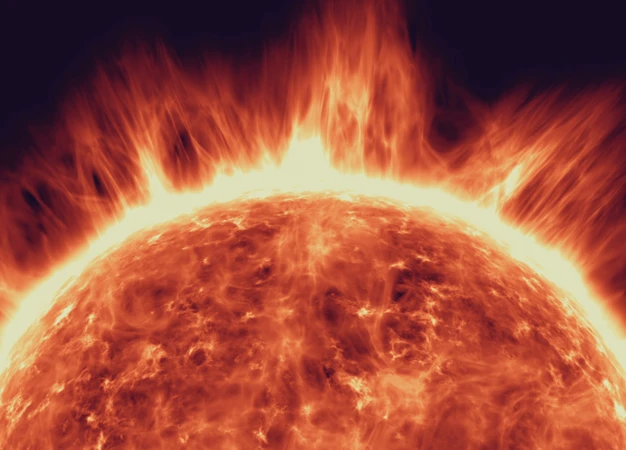Throughout history, various mystical practices have attempted to uncover the secrets of the universe and its influence on human behavior. One such practice is astrology, which believes that the positions and alignments of celestial bodies can provide insight into the future. In particular, planetary alignments have been seen as significant in predicting major events, including wars and conflicts. This article delves into the historical significance of planetary alignments and their role in shaping the course of human warfare. By exploring ancient civilizations, medieval times, and modern discoveries, we can gain a deeper understanding of the connections between celestial events and the clashes of nations.
Contents
- The Mystical Connection Between Planetary Alignments and Human Behavior
- Understanding Planetary Alignments
- Astrology in Ancient Civilizations
- Planetary Alignments in Medieval Times
- Modern Discoveries and Wars
- Scientific Perspectives and Predictive Models
- Conclusion
- Frequently Asked Questions
- References
-
Frequently Asked Questions
- 1. Can planetary alignments really predict wars and conflicts?
- 2. How do planetary alignments influence human behavior?
- 3. Were ancient civilizations aware of the significance of planetary alignments?
- 4. Did planetary alignments play a role in the rise of ancient empires?
- 5. Can astrology really impact European conflicts during medieval times?
- 6. How does the zodiac impact medieval warfare?
- 7. Was there any celestial event associated with the beginning of World War I?
- 8. Did planetary alignments have an impact on World War II?
- 9. Can modern conflicts be predicted using planetary alignments?
- 10. How has astrological research evolved in predicting wars and conflicts?
- References
- Read More
The Mystical Connection Between Planetary Alignments and Human Behavior
In the realm of astrology, there is a belief in a mystical connection between planetary alignments and human behavior, a connection that extends to the occurrence of wars and conflicts. This notion is based on the idea that the positions and movements of celestial bodies can exert a profound influence on human activities, emotions, and even the course of history. Many ancient civilizations, such as the Aztecs and Egyptians, considered planetary alignments to be powerful omens that could foretell future events and shape the destiny of nations. Astrologers and astronomers in these societies closely observed the skies, seeking signs and patterns in the movements of the planets. They believed that specific alignments could herald significant events, including wars and the rise and fall of empires.
Some astrologers argue that planetary alignments can influence human behavior by tapping into the energies associated with each planet. For example, the alignment of Mars, the god of war, with other planets can be interpreted as an indication of impending conflict and aggression. The energy and symbolism attributed to each planet are believed to interact and create a unique combination of influences that shape the collective consciousness of societies. This idea is further supported by the connection between astrology and psychology, where certain personality traits and behaviors are associated with different zodiac signs and planetary placements.
It is important to note that astrology should not be confused with astronomy, which is a scientific discipline focused on the study of celestial bodies. While astronomy provides concrete data on the physical properties of planets and their movements, astrology is more concerned with the interpretation and symbolic meaning of those movements. Nevertheless, throughout history, many individuals and civilizations have placed great faith in astrology and its ability to predict and explain human behavior. This mystical belief in the connection between planetary alignments and human behavior continues to captivate our imagination and intrigue us to this day.
Internal link: To learn more about the cultural achievements of the Aztecs, click here.
Understanding Planetary Alignments
Planetary alignments occur when two or more planets appear to align in the sky from the perspective of an observer on Earth. These alignments can take various forms, such as conjunctions, oppositions, and trines, each with its own astrological significance. Conjunctions happen when planets appear close together in the sky, while oppositions occur when planets are on opposite sides of the Earth. Trines, on the other hand, involve planets forming angles of 120 degrees with each other.
The interpretation of planetary alignments in astrology depends on several factors, including the specific planets involved, their zodiac signs, and the houses they occupy in an individual’s birth chart. Each planet is associated with different energies and qualities, and their alignments can amplify or diminish these influences. For instance, a conjunction between Mars and Pluto may indicate intense power struggles and potential for conflict, while a trine between Venus and Jupiter suggests harmonious and fortunate circumstances.
Astrologers often use ephemerides, which are tables or charts that provide the positions of celestial bodies at specific times, to predict and analyze planetary alignments. These tools allow astrologers to track the movements of planets and identify significant alignments that may influence world events or individual lives.
Internal link: To understand the difference between astrology and astronomy and their impact on zodiac constellations and personalities, read our article here.
Astrology in Ancient Civilizations
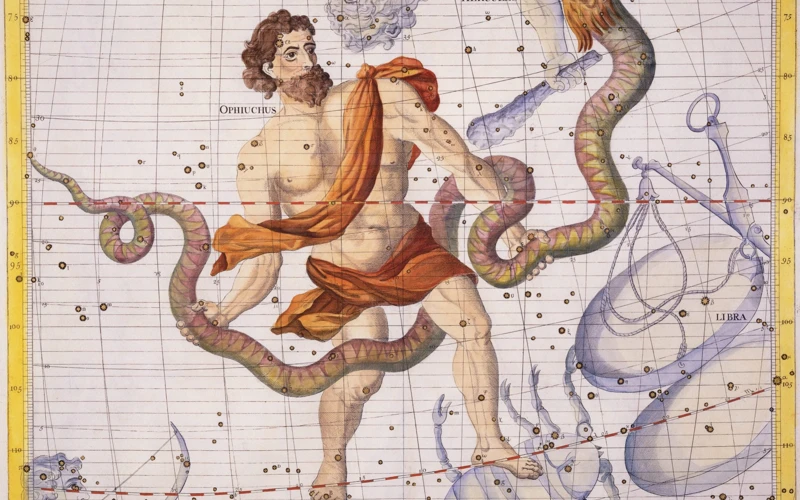
Astrology played a significant role in the belief systems and daily life of many ancient civilizations. From the Mesopotamians to the Egyptians, celestial observations and the interpretation of planetary alignments were deeply embedded in their cultures. The ancient civilizations saw the skies as a cosmic theater that reflected the actions and intentions of the gods. They believed that planetary alignments held divine messages and indications of future events, including wars and conflicts.
One prime example of astrology’s prominence in ancient civilizations is ancient Egypt. The Egyptians associated specific deities with celestial bodies, such as the god Thoth with the planet Mercury and the goddess Isis with the star Sirius. They believed that these celestial entities had a profound influence on human affairs. The alignment of certain planets with these deities was seen as both a blessing and a warning, often guiding the decisions of pharaohs and military leaders in times of war. For instance, the alignment of Sirius with the planet Mars was believed to signal great military victories.
Astrology also played a key role in Mesopotamia, where the study of celestial omens was taken very seriously. The Mesopotamians utilized divination techniques to interpret the movements and alignments of celestial bodies. They believed that the position of planets and stars at the time of significant events, such as the birth of a ruler or the declaration of war, could reveal important insights about the outcome and consequences. The royal courts employed astrologer-priests who specialized in interpreting celestial signs and advising rulers on matters of state, including warfare strategies.
The understanding and practice of astrology in ancient civilizations illustrate how profoundly celestial events were woven into their belief systems, influencing decision-making and shaping historical events. These civilizations regarded planetary alignments as indicators of divine will, and their interpretation played a vital role in guiding the paths of nations and the conduct of war.
Internal link: To learn more about the role of Isis in Egyptian mythology, click here.
Planetary Alignments and the Rise of Ancient Empires
The rise of ancient empires often coincided with significant planetary alignments, leading some to believe that celestial events played a role in shaping these civilizations. Ancient societies, such as the Mesopotamians and Egyptians, believed that the positions and interactions of celestial bodies held great significance and were reflections of divine will. They believed that planetary alignments were powerful omens that could indicate the favor or disfavor of the gods and shape the destiny of their empires.
In Mesopotamia, for example, the Babylonians were fervent astronomers who meticulously recorded astronomical observations. They believed that the movements of celestial bodies, including planetary alignments, contained messages from the gods and had direct influences on human affairs. The Babylonian Empire, one of the most powerful empires in ancient times, emerged during a period when Jupiter and Saturn aligned in the zodiac sign of Taurus. This alignment was seen as a favorable sign by the Babylonians, symbolizing the rise of a great empire. Similarly, the Egyptian civilization attributed great importance to celestial events, particularly planetary alignments. They believed that the alignment of specific planets, such as Venus and Mars, were associated with their patron deities and could influence the outcome of wars and conflicts. For instance, the alignment of Venus with the god Horus was considered a harbinger of victory, while the alignment of Mars with the goddess Isis was believed to bring about conflict and chaos.
These ancient civilizations utilized their understanding of planetary alignments to interpret and navigate their world. They consulted astrologers and priests who analyzed celestial patterns to predict the best times for war, establish auspicious dates for important events, and advise rulers on matters of state. The belief in the connection between planetary alignments and the rise of ancient empires was deeply ingrained in the cultural, religious, and political fabric of these societies, leading to a widespread reliance on astrology for guidance and decision-making.
Case Study: The Mesopotamian Empire and Celestial Influences
A fascinating case study showcasing the historical significance of planetary alignments can be found in the Mesopotamian Empire. Mesopotamia, an ancient civilization that thrived in the fertile lands between the Tigris and Euphrates rivers, held a deep belief in the influence of celestial bodies on the affairs of humanity. The Mesopotamians, particularly the priests and astrologers, closely observed the movements and alignments of planets, considering them as celestial messages from the gods.
The Mesopotamians believed that specific alignments of planets could provide insights into the future, including the outcomes of wars and conflicts. They developed an intricate system of celestial divination known as “omenology,” which involved interpreting celestial signs to predict events on Earth. Planetary alignments played a crucial role in this divination process. For instance, the alignment of Mars, known as Nergal in the Mesopotamian pantheon, with other planets might indicate that a major military campaign was imminent or that victory would be achieved in battle.
One famous example of celestial influences in Mesopotamian history is the construction of Babylon during the reign of Nebuchadnezzar II. The alignment of key planets and stars, such as Jupiter and the constellation of Leo, was believed to be an auspicious sign and a divine mandate for the expansion of Babylon. The Mesopotamians saw these celestial alignments as a validation of their military endeavors and conquests, instilling confidence and bolstering the empire’s power.
It is important to note that the Mesopotamians’ understanding of celestial phenomena was not limited to astrology alone. They also made significant contributions to astronomy, carefully documenting and mapping the movements of planets and stars. Their knowledge of celestial mechanics allowed them to predict future alignments and utilize this information in various aspects of their society, including warfare.
The case study of the Mesopotamian Empire demonstrates the profound impact that planetary alignments had on the beliefs and actions of ancient civilizations. These alignments were not merely seen as random occurrences but were interpreted through a mystical lens, guiding the decisions of rulers, shaping military strategies, and instilling a sense of divine purpose. The Mesopotamians’ reverence for celestial influences provides a unique insight into the historical significance of planetary alignments in the context of wars and conflicts.
The Role of Planetary Alignments in Egyptian Warfare
Egyptian civilization is known for its rich mythology and belief systems, which included a strong connection between planetary alignments and warfare. The ancient Egyptians saw the alignment of celestial bodies as symbols of divine favor or disfavor, and they believed that the position and movement of the planets could directly impact the outcomes of battles.
One notable example of the role of planetary alignments in Egyptian warfare is the influence of the planet Mars. In Egyptian mythology, Mars was associated with the god Horus, the falcon-headed deity of war and protection. The alignment of Mars with other planets was seen as a powerful omen, indicating the favor of Horus and ensuring victory in battle. The ancient Egyptians would carefully observe the movements of Mars, interpreting its positions in relation to other celestial bodies to determine when it was most auspicious to engage in military campaigns.
The alignment of other planets, such as Jupiter and Saturn, also held significance in Egyptian warfare. These planets were associated with other deities, such as Amun and Ptah, who were revered as guardians and guides for the pharaohs and armies. The alignment of these planets was thought to indicate favorable conditions for military expeditions and the success of conquests.
To keep track of the movements of celestial bodies, the ancient Egyptians developed sophisticated astronomical instruments and observations. They carefully recorded and interpreted celestial events, including planetary alignments, and incorporated this information into their military strategies. For instance, in times of particularly favorable alignments, the pharaohs would plan their military campaigns accordingly, believing that cosmic forces were aligning in their favor.
The belief in the role of planetary alignments in Egyptian warfare extended beyond just the planning stages. The alignment of celestial bodies was often used as a propaganda tool to rally soldiers and inspire confidence in the righteousness of their cause. It served as a way to elevate the significance of the conflicts and instill a sense of divine purpose in the soldiers.
The ancient Egyptians held the belief that planetary alignments were intimately connected to warfare. They interpreted the movements of celestial bodies, particularly Mars, Jupiter, and Saturn, as indicators of divine favor and used this knowledge in military planning and propaganda. This belief reflected their complex mythological and religious system and played a significant role in shaping their approach to warfare.
Planetary Alignments in Medieval Times
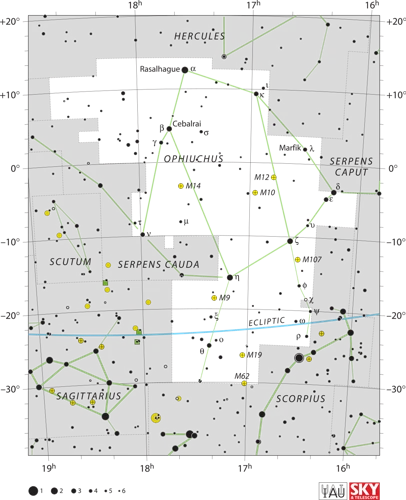
In medieval times, astrology played a significant role in shaping the beliefs and actions of individuals, including rulers, warriors, and strategists. The study of planetary alignments was seen as a key element in understanding the unfolding of events and predicting the outcomes of conflicts. During this period, astrology was closely linked to religion and considered a divine tool for interpreting celestial messages.
Astrologers believed that the positioning and alignments of planets could offer valuable insights into political affairs and military endeavors. These alignments were seen as celestial signatures that foretold the rise and fall of kingdoms, the outcomes of battles, and the fate of nations. Varying planetary configurations were associated with different outcomes, and astrologers were consulted to analyze these alignments and provide their interpretations to political and military leaders.
One example of the influence of astrology on medieval warfare can be found in the practice of horary astrology. This branch of astrology involved casting charts and analyzing planetary positions at the exact moment a question was asked. Military leaders often sought the advice of astrologers before embarking on campaigns or engaging in significant battles. By examining the planetary alignments at the time of inquiry, astrologers would provide guidance on the most favorable or unfavorable time to wage war, which heavily influenced the decision-making process.
Additionally, the medieval period saw the flourishing of astrological treatises and texts that further explored the connection between planetary alignments and various aspects of life, including warfare. These texts provided detailed guidelines on how to interpret celestial configurations and their implications for military strategies and outcomes. Astrologers were considered vital advisors in matters of war and were often consulted to provide insights on enemy movements, potential victories, and the overall fate of battles.
Internal link: To learn more about the Zodiac and its impact on medieval warfare, click here.
The Influence of Astrology on European Conflicts
Astrology has had a significant impact on European conflicts throughout history. In medieval times, astrology and its belief in planetary alignments played a crucial role in shaping military strategies and decision-making processes. Kings, emperors, and military leaders often consulted astrologers and sought their advice before engaging in battles and conflicts. Astrologers would analyze the positions and movements of the planets, looking for auspicious or inauspicious alignments that could affect the outcome of wars.
One notable example of astrology’s influence on European conflicts is the Hundred Years’ War between England and France. Both sides heavily relied on astrology to guide their military actions. The Battle of Agincourt in 1415, for instance, was fought on a day that astrologers deemed to be favorable for the English forces. This alignment was believed to bring victory to the English, and indeed, they emerged victorious despite being heavily outnumbered. These perceived alignments and predictions not only affected military strategies but also shaped the morale and mindset of the soldiers on both sides of the conflict.
During the Renaissance period, astrology continued to hold sway over European leaders. Queen Elizabeth I of England, for example, had a personal astrologer named John Dee, who advised her on matters of state. Dee’s astrological insights influenced Elizabeth’s decision-making process, particularly in matters of diplomacy and warfare. Similarly, in France, King Louis XIV regularly consulted astrologers and used their predictions to plan his military campaigns.
The influence of astrology on European conflicts extended beyond individual leaders and rulers. Armies would often postpone or change their plans depending on astrological predictions. For example, if a specific alignment was considered unfavorable, troops might be held back or strategies altered to avoid engaging in battle during that time. Astrological interpretations even led to the development of military calendars that highlighted auspicious and inauspicious days for military campaigns.
Internal link: To explore the differences between astrology and astronomy, and the impact of zodiac constellations on personalities, click here.
Exploring the Zodiac and its Impact on Medieval Warfare
During the medieval period, astrology played a significant role in shaping the beliefs and decisions of individuals and societies, including in the realm of warfare. One aspect of astrology that held great importance during this time was the study of the zodiac and its impact on human affairs. The zodiac, a band of constellations encircling the Earth, was divided into twelve equal parts called signs. Each sign was associated with specific characteristics and ruled by a particular planet. The medieval understanding of the zodiac was deeply intertwined with the idea of celestial influence on earthly events.
In the context of warfare, medieval leaders often consulted astrologers and their knowledge of the zodiac to gain insights into the most auspicious times to wage war. They believed that the positions of the planets in relation to the zodiac signs could indicate favorable or unfavorable conditions for military campaigns. For example, a sign associated with strength and courage, like Leo, was favored for launching offensives, while a sign associated with caution, like Virgo, might suggest a more defensive stance. Astrologers would cast horoscopes for battles and analyze the positions of the planets to determine the most propitious moments to engage in combat.
Additionally, the zodiac sign under which an individual was born was thought to influence their personality and abilities on the battlefield. For instance, someone born under the sign of Aries, associated with the planet Mars, was believed to possess natural leadership qualities and a bold and aggressive nature, making them suitable for military command. On the other hand, those born under more passive zodiac signs may have been deemed better suited for support roles or diplomatic endeavors.
It is important to note that while astrology and the influence of the zodiac were widely accepted during the medieval period, these beliefs were not universally shared. Some scholars and religious figures expressed skepticism or outright condemnation of astrology, considering it a form of superstition or even heresy. Nevertheless, the impact of astrology, particularly regarding the zodiac and its influence on warfare, cannot be ignored when examining medieval history.
Internal link: To understand the difference between astrology and astronomy, and how zodiac constellations influence personalities, click here.
Modern Discoveries and Wars
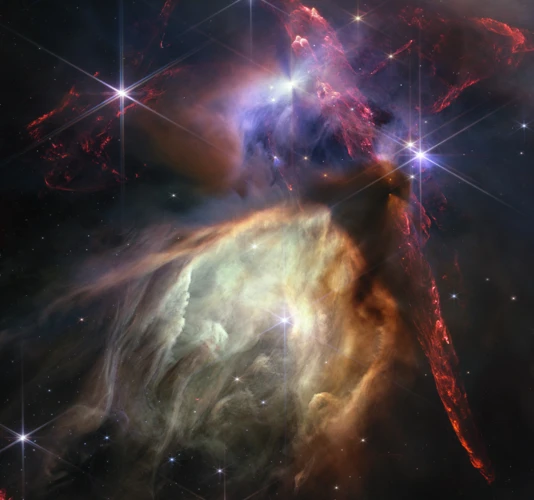
In the modern era, scientific advancements and technological discoveries have reshaped our understanding of planetary alignments and their potential impact on wars and conflicts. While astrology may be viewed skeptically by some, there are instances where significant celestial events align with major global conflicts, lending credence to the notion of a connection between the two.
One such example is World War I, which began in 1914. Leading up to the war, there were several remarkable celestial events. In the preceding years, there was a series of alignments involving Mars, the planet associated with war, and other celestial bodies. There was a rare and powerful alignment between Jupiter and Uranus, which some astrologers consider to symbolize a sudden and unexpected break in the status quo. These celestial events may have played a role in creating an atmosphere of tension and unrest that contributed to the outbreak of the war.
Similarly, World War II, one of the deadliest conflicts in history, is also linked to significant planetary alignments. In the years leading up to the war, there were notable alignments involving Saturn, a planet associated with structure and authority. These alignments signaled a time of upheaval and the potential for the overturning of established power structures. Additionally, there were powerful and dramatic planetary configurations during crucial points in the war, such as the Battle of Stalingrad and the D-Day invasion. These alignments may have influenced the course of the battles and the eventual outcomes.
Today, in the context of contemporary wars, the relevance of planetary alignments continues to be a subject of debate. While the scientific community generally dismisses astrology, there are still those who believe that celestial events can impact human behavior and global events. Some astrologers argue that planetary movements can offer insights into geopolitical dynamics and the potential for conflicts to arise. However, it is essential to approach these claims with a critical mindset and recognize that other factors, such as political, economic, and social circumstances, also contribute to the outbreak of wars and conflicts.
World War I: Celestial Events and the Beginning of a Global Conflict
World War I, one of the deadliest conflicts in human history, was preceded by several significant celestial events that some believe played a role in its outbreak. Prior to the war, there were notable planetary alignments and celestial phenomena that astrologers interpreted as foreboding signs. One such event was the alignment of Jupiter and Uranus, two planets associated with expansion and rebellion, in the sign of Cancer. This alignment was seen as a symbol of the escalating tensions and brewing conflicts among nations. Additionally, there was a solar eclipse in June 1914, just a month before the assassination of Archduke Franz Ferdinand, which served as a catalyst for the war. Solar eclipses have long been associated with upheaval and major turning points in history.
It is intriguing to note that the planet Mars, often linked to war and aggression, was in a particularly prominent position during this time. As Mars came into alignment with Uranus and Pluto, the fiery and transformative energy associated with these planets was believed to instigate conflict and upheaval. In the realm of astrology, there is a belief that such celestial events can trigger societal unrest and ignite global conflicts.
While it is important to approach these interpretations with a critical eye, it is fascinating to consider the correlation between celestial events and the onset of World War I. The alignment of planets and the occurrence of eclipses may have contributed to the heightened tensions and underlying instabilities that ultimately culminated in one of the most devastating conflicts in history. Whether mere coincidence or a reflection of deeper cosmic influences, the celestial events preceding World War I add an intriguing layer to our understanding of the factors that shape human conflicts and the course of history.
World War II: Alignments and the Tide of Battle
The influence of planetary alignments on major historical events can be seen vividly in the context of World War II. While the idea that celestial events can shape the outcome of wars may seem far-fetched to some, there were certain planetary alignments that coincided with significant milestones and turning points during this global conflict.
One such example is the alignment of Jupiter and Uranus in 1940, which marked a critical moment in the war. This alignment occurred in the zodiac sign of Aries, associated with action, courage, and military endeavors. The combination of Jupiter’s expansive energy and Uranus’ unpredictable nature created an atmosphere of sudden changes and surprising developments on the battlefield. It was during this time that Germany launched its Blitzkrieg campaign, swiftly conquering territories and solidifying its dominance in Europe.
Another alignment that had a profound impact on the course of the war was the conjunction of Saturn and Pluto in 1943. This alignment took place in the zodiac sign of Gemini, associated with communication, intelligence, and adaptability. It coincided with a series of key events, including the Allied invasion of Sicily and the overthrow of Italian dictator Benito Mussolini. The alignment of Saturn and Pluto in Gemini brought about a period of intense transformation and strategic maneuvers, ultimately leading to the liberation of Europe from Axis control.
These planetary alignments, among others, underscore the idea that celestial events can have an influence on the tide of battle. While it is important to approach this concept with open-minded skepticism, it cannot be denied that the timing of certain alignments coincided with significant military turning points during World War II.
Contemporary Wars: The Relevance of Planetary Alignments
In the modern era, while the influence of astrology on warfare may be seen as a relic of the past, there are still those who believe in the relevance of planetary alignments in contemporary conflicts. Although not widely accepted, some individuals argue that celestial events can still have an impact on geopolitical tensions and the outbreak of wars. They maintain that specific planetary alignments may create an energetic shift that affects the collective consciousness, potentially leading to escalated tensions and military actions.
Advocates of this idea point to historical examples where major conflicts occurred during significant celestial alignments. They argue that these occurrences highlight the potential correlation between planetary positions and human behavior. Additionally, they suggest that the interconnectedness of societies today, through technology and global communication, could amplify the effects of such alignments.
However, it is important to approach these claims with a critical mindset. The scientific community largely dismisses the relevance of astrology and planetary alignments in predicting wars or conflicts. Experts argue that geopolitical decisions and conflicts are influenced by complex political, economic, and social factors rather than celestial events.
Nonetheless, the belief in the relevance of planetary alignments in contemporary wars continues to intrigue some individuals. It is a testament to the enduring fascination humans have with astrology and its potential influence on the course of human history. While astrology may not hold the same level of credibility as in ancient times, its impact on culture and the human psyche cannot be denied.
Scientific Perspectives and Predictive Models
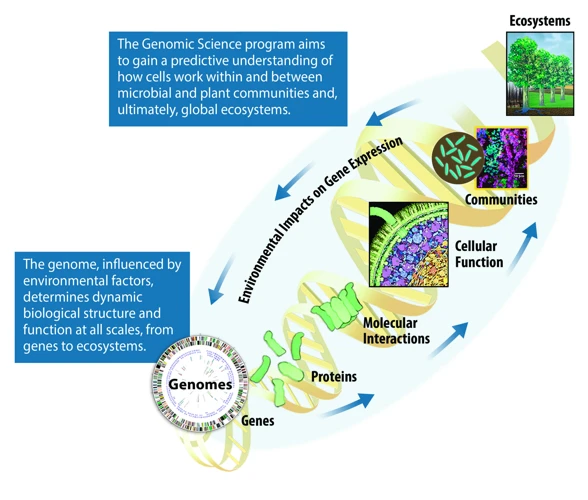
While astrology is often viewed as a mystical practice, there have been attempts to approach the study of planetary alignments and their potential effects on human behavior from a scientific perspective. Researchers in this field seek to develop predictive models that integrate astronomical data and statistical analysis to determine if there are any correlations or patterns between celestial events and major historical events, such as wars and conflicts.
One key aspect of this scientific approach is the collection of reliable and comprehensive data on planetary positions and alignments throughout history. By examining historical records, astronomical observations, and even ancient texts, researchers can reconstruct the positions of planets at specific points in time. This data is then analyzed, looking for any recurrent patterns or alignments that might coincide with significant historical events.
Using statistical analysis, researchers attempt to determine if there is a causal relationship between specific planetary alignments and the occurrence of wars and conflicts. This involves comparing the frequency of these alignments during times of peace and times of war, searching for any statistically significant differences. By applying rigorous scientific methodologies, researchers aim to establish a framework for predicting future conflicts based on planetary alignments.
It is important to note that the scientific perspective on planetary alignments and their influence on human behavior is highly controversial and often met with skepticism. Critics argue that any correlations found may be mere coincidences or the result of cherry-picking data. They claim that the complexities of human behavior and the countless factors contributing to the outbreak of wars render any astrological predictions unreliable.
Nevertheless, proponents of this scientific approach believe that further study and the development of more sophisticated predictive models may yield valuable insights. They argue that astrology, as a discipline, has evolved over thousands of years and is deeply ingrained in human culture. Exploring the potential links between planetary alignments and conflicts can help us better understand the interplay between celestial events and geopolitics, even if the mechanisms behind such connections remain elusive.
Planetary Alignments and their Interplay with Geopolitics
Planetary alignments have long been believed to have an interplay with geopolitics, influencing the power dynamics and conflicts between nations. While the connection between celestial events and human behavior may seem intangible, astrologers argue that the alignment of planets can have a significant impact on the geopolitical landscape. This belief is rooted in the idea that planetary alignments can amplify certain energies and create a ripple effect that permeates social, economic, and political spheres.
Astrologers who study the interplay between planetary alignments and geopolitics analyze the specific astrology charts of nations and world leaders. These charts provide insights into the potential strengths, weaknesses, and challenges a nation may face during a particular planetary alignment. For example, the alignment of aggressive and assertive planets like Mars or Pluto with a nation’s chart may indicate a period of increased tension and potential conflict. Conversely, alignments involving harmonious and diplomatic planets like Venus or Jupiter may suggest a period of peaceful relations and cooperation between nations.
Astrologers consider the astrological charts of world leaders and their compatibility with particular planetary alignments. This compatibility can shed light on the leaders’ potential to navigate international conflicts successfully or exacerbate tensions. For instance, a leader whose birth chart aligns favorably with a planetary alignment associated with war may be more likely to engage in aggressive actions or make decisions that heighten conflict.
While critics argue that the connection between planetary alignments and geopolitics lacks scientific validity, proponents of this belief highlight historical events that seemingly support their claims. They point to instances where significant planetary alignments coincided with the outbreak of wars or major geopolitical shifts. However, it is important to note that attributing causality solely to planetary alignments oversimplifies the complex web of political and social factors that contribute to conflicts.
Internal link: If you are interested in learning more about the differences between astrology and astronomy, click here.
The Advances in Astrological Research and Predictive Analysis
Astrological research and predictive analysis have constantly evolved and advanced over the years, contributing to a deeper understanding of the connection between planetary alignments and human affairs. While astrology has often been met with skepticism and criticism, there are those who continue to explore its potential as a tool for predicting future events, including wars and conflicts.
One significant advance in astrological research is the development of predictive models and techniques. Astrologers have refined and expanded their methods to enhance their accuracy in forecasting major events. Through the study of planetary alignments, astrologers can identify patterns and correlations that may indicate the likelihood of conflicts and upheavals in specific regions or on a global scale.
Modern astrologers also take into account geopolitical factors and historical data, integrating these elements into their predictive analysis. By combining the influences of planetary alignments with an understanding of political tensions, social dynamics, and economic factors, astrologers strive to provide more comprehensive and nuanced predictions.
Technological advancements have enabled astrologers to access vast amounts of data, allowing for more complex calculations and precise observations. With the aid of computer software and sophisticated algorithms, astrologers can analyze the intricate relationships between planetary alignments and human behavior, expanding their predictive capabilities.
It is important to note that while advancements in astrological research have undoubtedly contributed to its credibility, skeptics argue that astrological predictions are often vague and open to interpretation. However, proponents of astrology contend that it is not meant to be a definitive science but rather a tool for self-reflection and gaining insight into the potential influences at play in our lives and society as a whole.
Nevertheless, astrological research and predictive analysis continue to evolve, encompassing a wide range of methodologies and approaches. As technology and our understanding of celestial phenomena advance, astrology may continue to provide valuable perspectives on the connections between planetary alignments and the patterns of human behavior.
Conclusion

Throughout history, planetary alignments have held a significant place in the realm of astrology and its connection to human behavior. From ancient civilizations to medieval times and even in modern history, the belief in the influence of celestial bodies on earthly events has persisted. While there is no scientific evidence to support these claims, the mystical belief in the power of planetary alignments to predict wars and conflicts has captivated the human imagination for centuries.
Astrologers in ancient civilizations such as the Aztecs and Egyptians closely observed and interpreted planetary alignments as omens of major events, including wars and the rise and fall of empires. The symbolic energies associated with each planet were believed to influence human behavior and shape the collective consciousness of societies. This belief in the influence of planetary alignments on human behavior, while separate from the scientific discipline of astronomy, has continued to pique curiosity and intrigue.
While astrology may not be based on scientific evidence, it remains a cultural and historical phenomenon that continues to captivate people’s fascination with the cosmos. The belief in the connection between planetary alignments and human behavior serves as a reminder of our ongoing search for meaning and our desire to understand the forces that shape our world. Whether one views astrology as a genuine predictive tool or as a reflection of our own hopes and fears, the historical significance of planetary alignments in predicting wars and conflicts underscores the enduring power of human curiosity and belief in the mystical.
Frequently Asked Questions

FAQs About the Mystical Connection Between Planetary Alignments and Human Behavior
1. Is there scientific evidence to support the idea of a connection between planetary alignments and human behavior?
While astrology is not considered a scientific discipline, there are ongoing studies exploring the possible links between celestial events and human behavior. However, conclusive scientific evidence on this matter remains elusive.
2. Can planetary alignments accurately predict wars and conflicts?
While some believe that planetary alignments can provide insights into potential conflicts, predicting specific wars and conflicts solely based on these alignments is contentious and subject to interpretation.
3. How do different cultures interpret planetary alignments and their significance in relation to wars?
Different cultures have their unique interpretations of planetary alignments. For example, the Aztecs and Egyptians believed these alignments were powerful omens, while medieval Europeans associated them with divine will and fate.
4. Are planetary alignments the only factors considered in predicting wars?
No, the prediction of wars and conflicts involves a range of complex factors, including geopolitical tensions, social dynamics, economic conditions, and historical context. Planetary alignments are just one aspect that some cultures have considered.
5. Can understanding planetary alignments help prevent conflicts?
While astrology provides a framework for exploring the connections between celestial events and human behavior, it does not have the power to prevent conflicts on its own. Conflict prevention requires a multi-faceted approach, including diplomacy, peacekeeping efforts, and addressing root causes of tension.
6. Are there any documented cases where planetary alignments accurately predicted wars or conflicts?
There are historical accounts of civilizations associating planetary alignments with significant events, including wars. However, the accuracy and verifiability of these predictions are difficult to ascertain due to the lack of concrete evidence.
7. How do astrologers interpret planetary alignments to predict conflicts?
Astrologers analyze the alignment of planets, their positions in specific zodiac signs, and their aspects (angular relationships). They then interpret these celestial positions and their symbolic associations to forecast potential conflicts in a given period.
8. Can the influence of planetary alignments on human behavior be measured?
Measuring the influence of planetary alignments on human behavior is challenging due to the complex interplay of various factors. Additionally, astrology often focuses on qualitative interpretations rather than quantitative measurements.
9. Why do some people find belief in planetary alignments and their influence on wars compelling?
Belief in planetary alignments offers a sense of order and control in an unpredictable world. It provides a framework for understanding the forces that shape human existence and may offer a source of comfort and guidance for some individuals.
10. Are there any ethical or moral implications in using astrology to predict wars?
The use of astrology to predict wars raises ethical and moral questions, particularly when it leads to fatalistic attitudes or justifications for aggression. It is important to approach astrology and its predictions with a critical mindset and recognize the complexities of human behavior and societal dynamics.
References
- The Jupiter and Saturn conjunction, through medieval …
- Does planets’ position in zodiac constellations drive the …
- The Persistent Myth About Planetary Alignments
Frequently Asked Questions

1. Can planetary alignments really predict wars and conflicts?
While some believe in the mystical connection between planetary alignments and human behavior, the scientific community remains skeptical about the direct predictive power of such alignments when it comes to wars and conflicts.
2. How do planetary alignments influence human behavior?
According to astrologers, planetary alignments can influence human behavior by affecting the energy flow and cosmic vibrations that surround us. However, there is limited scientific evidence to support these claims.
3. Were ancient civilizations aware of the significance of planetary alignments?
Ancient civilizations, such as the Mesopotamians and Egyptians, indeed had a deep understanding of celestial movements. They believed that planetary alignments held great significance and often associated them with important events, including wars and conflicts.
4. Did planetary alignments play a role in the rise of ancient empires?
There is evidence to suggest that ancient empires considered celestial alignments during their conquests and territorial expansions. It is believed that they viewed these alignments as signs of divine favor and employed them in their military strategies.
5. Can astrology really impact European conflicts during medieval times?
Astrology played a significant role in European conflicts during the medieval period. Kings and emperors often consulted astrologers for guidance on matters of war and made strategic decisions based on astrological predictions.
6. How does the zodiac impact medieval warfare?
The zodiac was an essential element in medieval astrology. Each zodiac sign was associated with certain characteristics and qualities, which influenced warfare strategies and decision-making on the battlefield.
7. Was there any celestial event associated with the beginning of World War I?
Yes, there were celestial events associated with the beginning of World War I. The assassination of Archduke Franz Ferdinand coincided with a solar eclipse, adding a mystical element to the already tense political climate at the time.
8. Did planetary alignments have an impact on World War II?
While there is no direct evidence of planetary alignments influencing the outcomes of battles, some astrologers believe that certain alignments coincided with significant events during World War II. However, this remains a topic of debate among historians and scientists.
9. Can modern conflicts be predicted using planetary alignments?
The predictive power of planetary alignments in modern conflicts is still a subject of controversy. Some astrologers and researchers argue that there may be correlations between celestial events and geopolitical tensions, but conclusive evidence is yet to be established.
10. How has astrological research evolved in predicting wars and conflicts?
Astrological research has advanced significantly with the advent of modern technology and data analysis techniques. Researchers now use complex models and statistical methods to analyze planetary alignments and their potential influences on human behavior, including wars and conflicts.
References
- Planetary alignment: is Wednesday doomsday? – UPI Archives
- The Persistent Myth About Planetary Alignments

